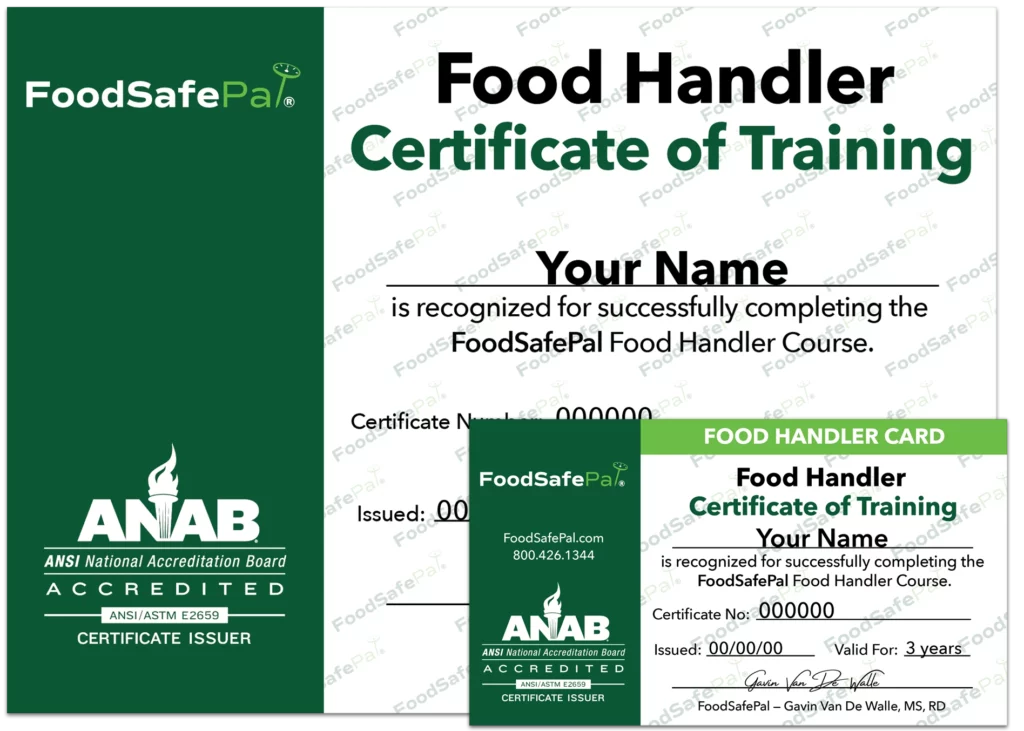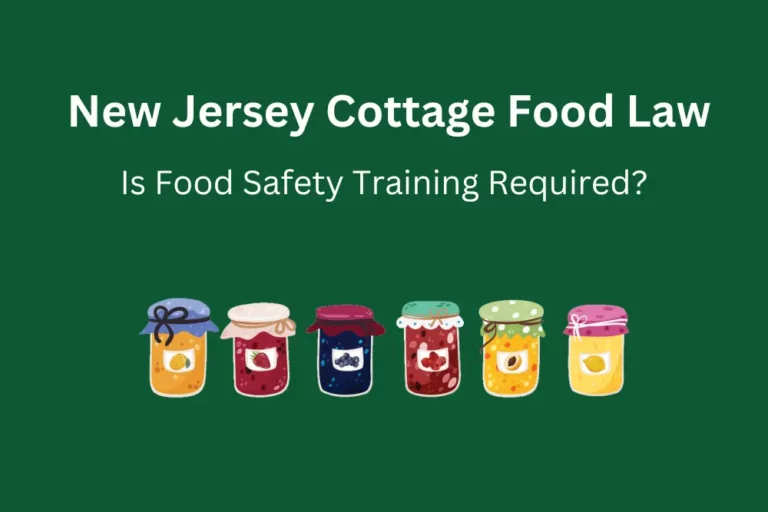New Mexico Cottage Food Law: Food Safety Training Requirements
Food that you produce at your primary residence and sell directly to people in your state is known as cottage food.
Each state has its own cottage food law, which regulates the types of foods you can make, to whom and how you sell, and even the amount of revenue you can earn from the sale of your homemade goods.
Before you can sell your homemade goods, many states require the completion of an approved food safety course, among other requirements.
This article discusses the New Mexico cottage food law, and whether you need food safety training to sell homemade food.

New Mexico cottage food production
New Mexico allows the production and sale of homemade goods that don’t require time or temperature controls to keep them safe.
Examples of approved foods include:
- baked goods (without cream, custard, cheese, or meat fillings)
- candy and confections
- cereals, grains, and granola
- whole roasted cofee beans
- dried or dehydrated produce
- dry herbs, pasta, seasonings, soup mixes, and tea
- fruit pies, empanads, and tamles
- fudge
- jams, jellies, and preserves
- nuts and nut mixes
- pickled produce
- popcorn
- uncut fruits and vegetables
Conversely, you cannot make and sell foods that require time and temperature control for safety like meats, poultry, seafood, milk and dairy products, and cut or sliced produce.
New Mexico requires that you sell allowed foods directly to people within the state at places like farmers’ markets, festivals, and roadside stands, or from your home for pick-up or through mail delivery.
You cannot sell your products to permitted food establishments like restaurants.
New Mexico regulates cottage food businesses differently than retail food establishments like restaurants, so you don’t need a license or permit and the department of health also won’t routinely inspect your home kitchen.
However, the department of health can inspect your inspection if the receive customer complaints about the safety of the food you sell or to investigate foodborne illness outbreaks potentially linked with your products.
New Mexico has no restriction on the annual revenue you can earn from the sale of your homemade goods.
Summary
Under the New Mexico cottage food law, you can sell foods that don’t require time-temperature controls for safety directly to customers within the state. New Mexico doesn’t regulate cottage food operations like they do retail food establishments, so you don’t need a license or permit.
Do you need food safety training to sell homemade food in New Mexico?
New Mexico requires that you obtain a food handler certificate from a certificate issuer that is accredited by the ANSI-National Accreditation Board (ANAB).
A food handlers certificate proves that you have completed a course on basic food safety principles and passed a test about these principles.
FoodSafePal’s Food Handler course is ANAB accredited so it meets New Mexico’s cottage food law requirements for food safety training.
Earn Your Food Handlers Card + Certificate to Sell Cottage Foods
Finish in 90 Minutes. Meets New Mexico’s Cottage Food Law.

FoodSafePal’s Food Handler course is designed for food workers in retail food establishments so some of the content isn’t applicable to cottage food operators.
Still, it covers the important food safety principles you must know to keep your homemade products safe from disease-causing organisms called pathogens that can make people sick.
After you complete the course content, you must take a test and answer at least 28 (70%) out of 40 multiple-choice question to pass and earn your food handlers certificate and card.
You can learn and test in under two hours completely online.
Upon passing, you can immediately download or print it as proof that you have completed the training.
Keep this certificate in a safe and easily accessible. While not required, it’s best practice to have it on display at the point of sale and posted on your website if you have one.
You must maintain the training by retaking and passing the course every three years.
Summary
New Mexico’s cottage food law requires the completion of a ANAB-accredited food handler course, such as the one offered by FoodSafePal.
Labeling requirements
New Mexico’s cottage food law requires that each product you sell is properly labeled with certain information.
This information allow your customers to contact you in the case of an illness potentially linked to your product.
It also informs customers of allergens that may be present and that the food is produced in a home kitchen not routinely inspected by the health department.
This label must include the following information:
- your business name, home address, phone number, and email address
- the common or usual name of the product
- the ingredients listed in descending order of predominance by weight (sub ingredients must be included)
- the statement: This product is home produced and is exempt from state licensing and inspection. This product may contain allergens.

Summary
New Mexico’s cottage food law requires that each food you wish to make and sell have a label with the required information, such as contact information for your business and the list of your product’s ingredients.
The bottom line
Under the New Mexico cottage food law, you can produce and sell foods that don’t require time or temperature controls like baked and other dry goods directly to people throughout the state.
If you want to start a cottage food business in New Mexico, you must first earn a food handlers card by completing and passing an ANAB-accredited food handler training course, such as the one offered by FoodSafePal.
After you complete the course and pass the test, you will be issued a certificate as proof of completion. You must maintain this certificate by retaking an approved food safety course every three years.
Earn Your Food Handlers Card + Certificate to Sell Cottage Foods
Finish in 90 Minutes. Meets New Mexico’s Cottage Food Law.

Each food you make and sell must also have a label with the required information.






